Located on the southern coast of Portugal, Faro is a vibrant and picturesque city that serves as the capital of the Algarve region. With its rich history, captivating culture, and stunning natural landscapes, Faro has become a popular destination for travelers seeking a mix of relaxation, exploration, and beachside beauty. From its historic Old Town and charming streets to its pristine beaches and vibrant nightlife, Faro offers a diverse range of experiences for visitors. This comprehensive guide provides a detailed overview of Faro from a traveler’s perspective, covering various aspects to enhance your exploration of this captivating city.
History & Culture:
Faro boasts a fascinating history that dates back to Roman times when it was known as Ossonoba. Over the centuries, the city was influenced by various civilizations, including the Moors and the Romans, which have left their mark on its architecture, traditions, and cultural heritage. The historic Old Town, known as Cidade Velha, showcases a mix of architectural styles, from medieval walls and Roman remnants to Renaissance and Moorish influences. The city is also home to a number of museums, galleries, and cultural institutions that provide insights into its rich history and artistic heritage.
Weather and Best Time to Visit:
Faro enjoys a Mediterranean climate, characterized by hot, dry summers and mild, rainy winters. The best time to visit Faro is during the spring (April to June) and autumn (September to October) when the weather is pleasantly warm, and the city is less crowded. These seasons offer ideal conditions for exploring the city’s attractions, enjoying outdoor activities, and taking advantage of the beautiful beaches. Summer (July to August) is the peak tourist season, with high temperatures reaching around 30°C (86°F). Winter (December to February) is mild, with temperatures ranging from 10°C to 16°C (50°F to 61°F), but it can be damp and rainy.
How to Reach:
Faro is well-connected and easily accessible by various means of transportation:
- By Air: Faro Airport, located just a few kilometers west of the city center, is the main international gateway to the Algarve. It serves numerous domestic and international flights, making it convenient for travelers from around the world.
- By Train: Faro has a train station that connects to major cities in Portugal, including Lisbon and Porto. The train journey from Lisbon to Faro takes approximately 3 hours.
- By Bus: Faro is well-served by bus services, with regular routes connecting it to other cities in Portugal. The journey from Lisbon to Faro by bus takes around 4-5 hours, depending on traffic.
- By Car: Faro is easily accessible by car, and the city has good road connections with the rest of the Algarve region and Portugal. Car rental services are available at the airport and in the city center.
Local Transportation:
Getting around Faro and exploring its surroundings is convenient with various local transportation options:
- Buses: Faro has an extensive bus network operated by EVA Transportes, which connects the city with nearby towns and villages in the Algarve region. Buses are an affordable and reliable way to travel within the city and explore the surrounding areas.
- Taxis: Taxis are readily available in Faro, and you can find them at designated taxi stands or hail them on the street. Make sure the taxi meter is running, or agree on a price before starting your journey.
- Bike Rentals: Faro is a bike-friendly city, and renting a bicycle is a great way to explore its charming streets and nearby natural areas. Several bike rental shops offer a variety of options for all ages.
- Walking:Faro is a relatively compact city, and many of its attractions are within walking distance of each other. Exploring the historic Old Town and its narrow streets is best done on foot, allowing you to soak in the atmosphere and discover hidden gems along the way.

Must-Visit Tourist Attractions:
- Faro Old Town: Step back in time as you wander through the historic center of Faro. Explore its cobbled streets, ancient walls, and picturesque squares, such as Largo da Sé and Largo de São Francisco.
- Faro Cathedral (Sé Catedral de Faro): Visit this impressive cathedral, dating back to the 13th century. Climb to the top of the tower for panoramic views of the city and the Ria Formosa Natural Park.
- Ria Formosa Natural Park: Embark on a boat tour or hike through the Ria Formosa Natural Park, a stunning coastal lagoon system with diverse flora and fauna. Discover its marshlands, sandbars, and pristine beaches.
- Faro Municipal Museum (Museu Municipal de Faro): Delve into Faro’s history and cultural heritage at this museum, housed in a former convent. Explore its archaeological exhibits, art collections, and learn about the city’s maritime past.
- Faro Marina: Take a leisurely stroll along the marina and enjoy views of the harbor filled with yachts and fishing boats. Relax at one of the waterfront cafes or restaurants and watch the sunset over the water.
- Carmo Church and Bone Chapel (Igreja do Carmo e Capela dos Ossos): Visit this unique church, famous for its bone chapel decorated with the remains of over 1,000 monks. Explore the intricate tilework and baroque architecture of the church.
- Algarve Regional Museum (Museu Regional do Algarve): Learn about the history, culture, and traditions of the Algarve region at this museum. It showcases a wide range of exhibits, including traditional crafts, archaeological finds, and folk costumes.
- Faro Archaeological Museum (Museu Arqueológico de Faro): Discover ancient artifacts and archaeological finds from the Algarve region at this museum. Explore its collection of Roman, Moorish, and prehistoric artifacts.
- Ilha Deserta: Take a boat trip to Ilha Deserta, also known as Barreta Island. This uninhabited island offers unspoiled beaches, crystal-clear waters, and tranquility away from the bustling city.
- Estoi Palace (Palácio de Estoi): Just outside Faro, in the village of Estoi, visit this stunning 19th-century palace. Admire its ornate architecture, beautiful gardens, and enjoy panoramic views from the rooftop terrace.
- Faro Walls and Gateways: Explore the remnants of the medieval walls that once protected the city. Discover the Arco da Vila gateway and the Arco do Repouso, which offer glimpses into Faro’s past.
- Faro Jewish Heritage Center: Learn about the Jewish history and heritage of Faro at this cultural center. It provides insights into the Jewish community’s contributions to the city’s history and culture.
- Faro Municipal Market (Mercado Municipal de Faro): Immerse yourself in the local culture at this bustling market. Browse stalls filled with fresh produce, fish, local products, and traditional delicacies.
- Carmo Church (Igreja do Carmo): Admire the architectural beauty of this church, known for its intricate blue and white tilework. The interior features a stunning wooden altar and beautiful artworks.
- Milreu Roman Villa: Discover the remains of a Roman villa at Milreu, locatedjust outside Faro. Explore the archaeological site, which includes well-preserved mosaics, thermal baths, and a Roman temple.
- Faro University Campus: Take a stroll through the picturesque campus of the University of Algarve, located in Faro. Enjoy the modern architecture and peaceful surroundings.
- Church of São Francisco: Visit this 17th-century church known for its ornate baroque interior, gilded woodwork, and intricate tile panels.
- Quinta do Lago: Explore the upscale resort area of Quinta do Lago, known for its luxurious villas, golf courses, and beautiful natural landscapes. Take a leisurely walk along the Ria Formosa or enjoy outdoor activities such as golf or birdwatching.
- Cape St. Mary (Cabo de Santa Maria): Take a short boat trip from Faro to Cape St. Mary, the southernmost point of mainland Portugal. Admire the dramatic cliffs and enjoy breathtaking views of the Atlantic Ocean.
- Vila Adentro: Enter the ancient heart of Faro through the Arco do Repouso and explore the narrow streets and charming squares of Vila Adentro. Discover historic buildings, picturesque churches, and hidden gems along the way.
Must-Do Activities:
- Island Hopping: Explore the nearby islands of Faro, such as Ilha de Faro, Ilha da Culatra, and Ilha do Farol. Relax on the sandy beaches, swim in the clear waters, and enjoy the peaceful atmosphere.
- Boat Trip in Ria Formosa: Take a boat tour in the Ria Formosa Natural Park. Cruise through its canals, visit the islands, and spot a variety of bird species and marine life.
- Dolphin Watching: Join a dolphin-watching tour in the Atlantic Ocean and observe these fascinating creatures in their natural habitat. It’s an unforgettable experience for nature lovers.
- Faro by Segway: Explore the city on a Segway tour and glide through its streets, squares, and waterfront areas. This fun and eco-friendly activity allow you to cover more ground while enjoying the sights.
- Water Sports: Try your hand at various water sports available in Faro, such as paddleboarding, kayaking, jet skiing, and windsurfing. The calm waters of the Ria Formosa provide an ideal setting for these activities.
- Wine Tasting: Indulge in a wine tasting experience and sample the Algarve’s renowned wines. Visit local wineries and vineyards, and learn about the region’s winemaking traditions.
- Golfing: Play a round of golf at one of the prestigious golf courses in the region. The Algarve is known for its world-class golfing facilities and breathtaking landscapes.
- Cultural Events: Check the local event calendar for cultural festivals, music concerts, and art exhibitions. Faro hosts various events throughout the year that showcase its vibrant arts and culture scene.
- Sunset at Faro Island: Witness the stunning sunset at Faro Island, a pristine stretch of sand located just a short boat ride away. Enjoy the peaceful atmosphere and breathtaking colors as the sun dips below the horizon.
- Explore the Ribeirinha Area: Stroll along the Ribeirinha area, located along the waterfront. Enjoy the views of the marina, admire the colorful fishing boats, and stop at waterfront cafes for a refreshing drink or meal.
- Picnic in Faro Gardens: Pack a picnic and head to one of Faro’s beautiful gardens, such as the Jardim Manuel Bivar or the Jardim da Alameda João de Deus. Relax in the shade of trees, enjoy the tranquility, and soak in the natural beauty.
- Shoppingand Markets:
- Forum Algarve: Explore this modern shopping center in Faro, which houses a variety of international and local brands. From fashion and accessories to electronics and home goods, you’ll find a wide range of options.
- Mercado Municipal de Faro: Immerse yourself in the local culture at Faro’s municipal market. Browse through stalls filled with fresh produce, regional products, and traditional delicacies.
- Rua de Santo António: Discover the bustling shopping street of Rua de Santo António, lined with shops selling fashion, accessories, and local crafts. It’s a great place to find unique souvenirs and gifts.
- Faro Antiques Market: If you’re a fan of antiques and vintage items, don’t miss the Faro Antiques Market. Browse through a wide array of furniture, collectibles, and unique finds.
- Farmers’ Market (Mercado de Levante): Experience the vibrant atmosphere of the Farmers’ Market, where local farmers and producers sell fresh fruits, vegetables, cheeses, and other local products.
Museums and Educational Institutions:
- Faro Municipal Museum (Museu Municipal de Faro): Discover Faro’s rich history and cultural heritage through archaeological exhibits, art collections, and temporary exhibitions.
- Faro Archaeological Museum (Museu Arqueológico de Faro): Explore the archaeological finds from the Algarve region, including Roman artifacts, Moorish ceramics, and prehistoric remains.
- Algarve Regional Museum (Museu Regional do Algarve): Learn about the traditions, crafts, and cultural heritage of the Algarve region through a variety of exhibits.
- University of Algarve: Take a tour of the University of Algarve and learn about its academic programs, research activities, and the cultural events it hosts.
Safety for Tourists and Do’s & Don’ts:
Faro is generally a safe city for tourists, but it’s always important to take standard precautions to ensure a pleasant and secure visit:
- Keep your belongings secure and be cautious of pickpockets, especially in crowded tourist areas.
- Be mindful of your surroundings and avoid walking alone in poorly lit or isolated areas at night.
- Use licensed taxis or reputable ride-sharing services, and be wary of unmarked taxis or accepting rides from strangers.
- Respect local customs and traditions, particularly when visiting religious sites or participating in cultural events.
- Observe local laws and regulations, including those related to the consumption of alcohol and drug use.
- Follow any safety instructions provided by tour operators or activity organizers.
- Be cautious when swimming in the ocean and adhere to any warnings or flags indicating unsafe conditions.
- Drink plenty of water, use sunscreen, and protect yourself from the sun, especially during the summer months.
- Stay hydrated and carry a bottle of water with you, especially when exploring during hot weather.
- Be aware of the tides and currents when visiting the beaches and follow any safety guidelines provided by lifeguards.
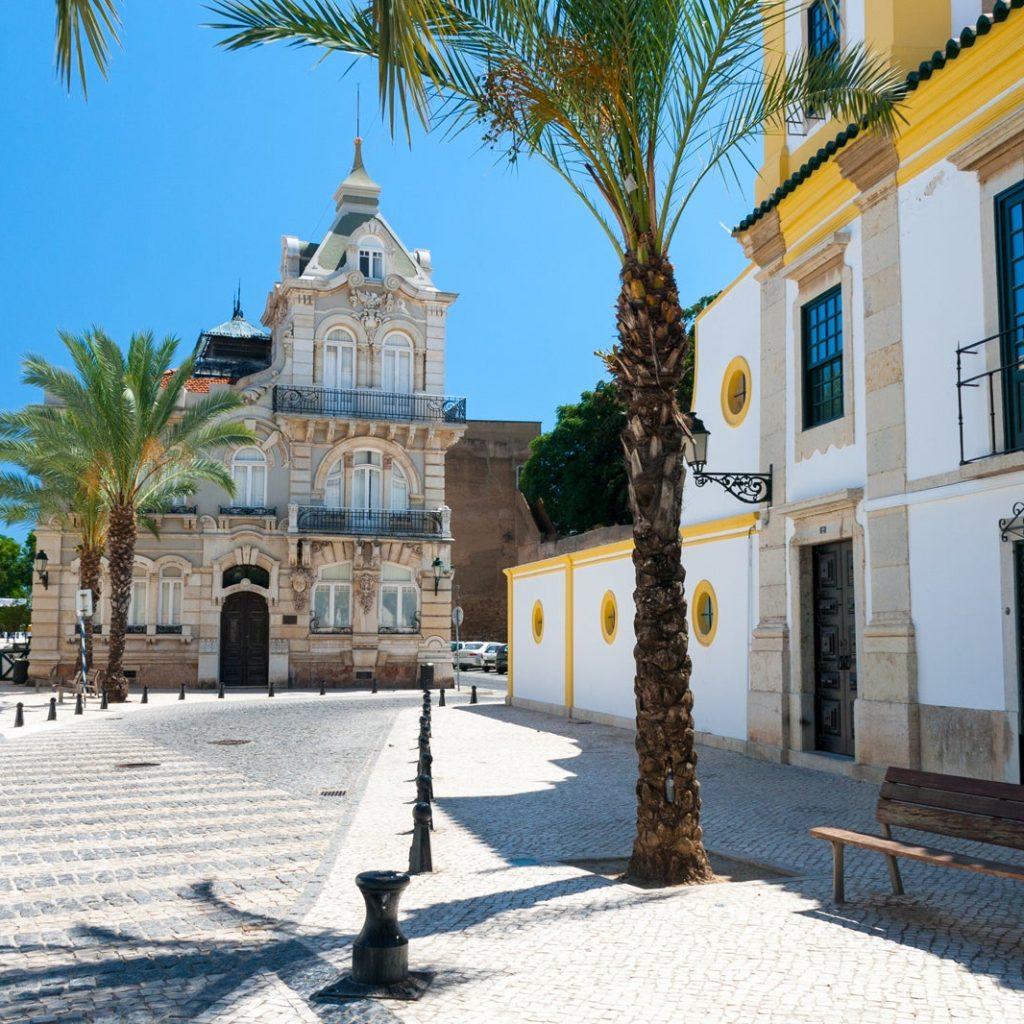
Environment and Sustainable Tourism:
Faro and the Algarve region are committed to sustainable tourism practices and the preservation of the environment. Here are some tips for responsible travel:
- Respect the natural habitats and wildlife of the Ria Formosa Natural Park and other protected areas.
- Dispose of waste properly and use recycling facilities whenever possible.
- Conserve water and electricity in your accommodations.
- Support local businesses that prioritize sustainability and promote locally sourced products.
- Choose eco-friendly transportation options, such as walking, cycling, or using public transportation.
- Be mindful of your carbon footprint and try to minimize it during your visit.
General Information:
Language: The official language of Faro and Portugal is Portuguese. English is widely spoken in tourist areas, but learning a fewbasic Portuguese phrases can be helpful.
Religion: The majority of the population in Faro and Portugal is Roman Catholic. However, there is religious diversity, with other Christian denominations and small communities of Muslims, Hindus, and Jews.
Population: Faro has a population of approximately 65,000 people.
Holidays: Some of the major holidays in Portugal include New Year’s Day (January 1), Easter (variable dates), Liberation Day (April 25), Labor Day (May 1), Portugal Day (June 10), and Christmas (December 25). It’s worth noting that some businesses and attractions may have reduced hours or be closed on public holidays.
Water: Tap water in Faro is generally safe to drink. However, if you prefer, bottled water is widely available.
Electricity: The standard voltage in Portugal is 230V, and the standard frequency is 50Hz. The plugs and sockets are of the European type, with two round pins.
Mobile and Internet: Faro has excellent mobile coverage, and major mobile operators provide reliable service. Wi-Fi is widely available in hotels, restaurants, cafes, and public spaces.
Health Services: Faro has well-equipped medical facilities and hospitals that provide quality healthcare services. European Union citizens can access emergency healthcare services with the European Health Insurance Card (EHIC). It is advisable for non-EU visitors to have travel insurance that covers medical expenses.
Postal Service: Faro has post offices (Correios) where you can send mail and parcels. They also provide other services such as currency exchange and selling postage stamps.
Suitable Clothing: The choice of clothing in Faro depends on the season. In summer, lightweight and breathable clothing is recommended, along with sun protection such as hats and sunscreen. In spring and autumn, layering is advisable as temperatures can fluctuate. In winter, a jacket or coat may be necessary, as temperatures can be cool, particularly in the evenings.
Banks: Faro has several banks and ATMs where you can withdraw cash. Major credit cards are widely accepted, but it’s always advisable to carry some cash for smaller establishments or markets.
In conclusion || Faro
Faro offers a captivating blend of history, culture, and natural beauty that entices travelers from around the world. With its charming Old Town, stunning beaches, and diverse range of attractions and activities, Faro provides a memorable experience for every visitor. Whether you’re exploring its rich history, indulging in delicious cuisine, or simply enjoying the coastal beauty, Faro invites you to immerse yourself in its vibrant atmosphere and discover the wonders of the Algarve’s capital.
Book Your Flights : Here 30% OFF on Booking
Book Your Hotels : Here 20% OFF on Booking

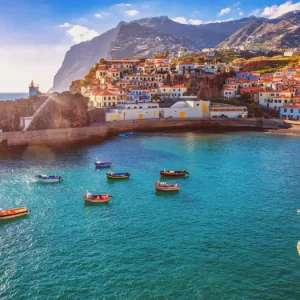
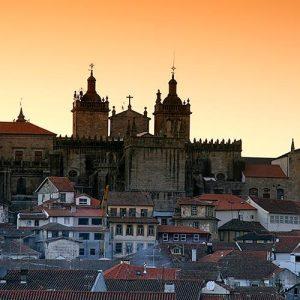
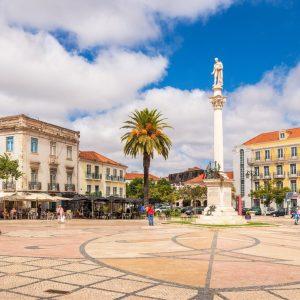
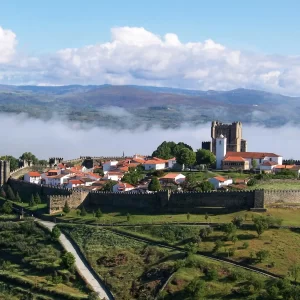
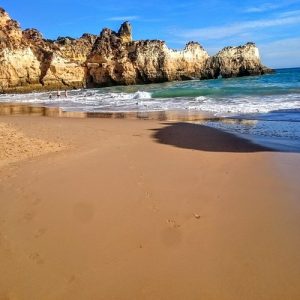
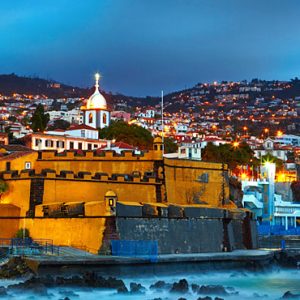
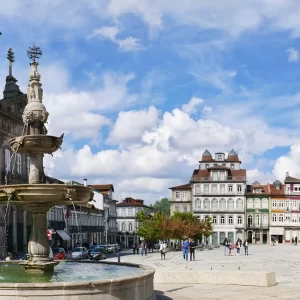
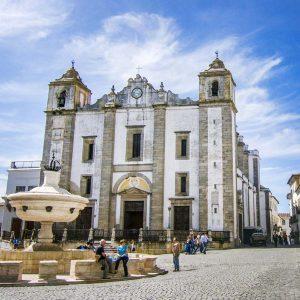
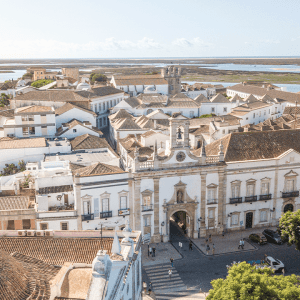
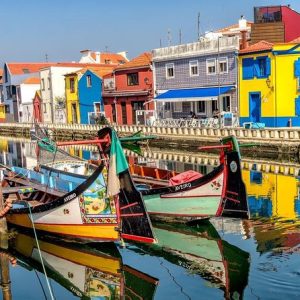
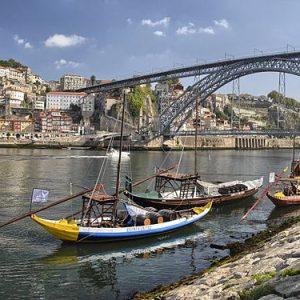
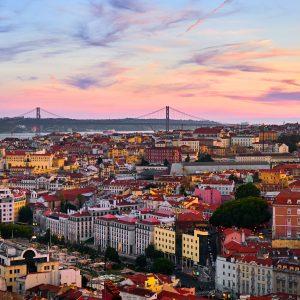
0 Comment